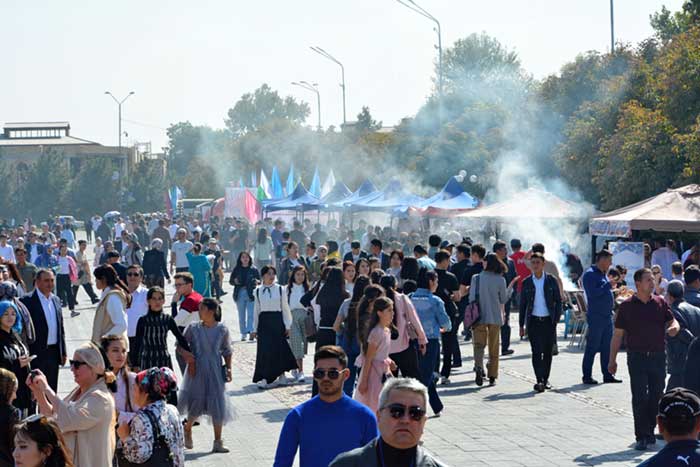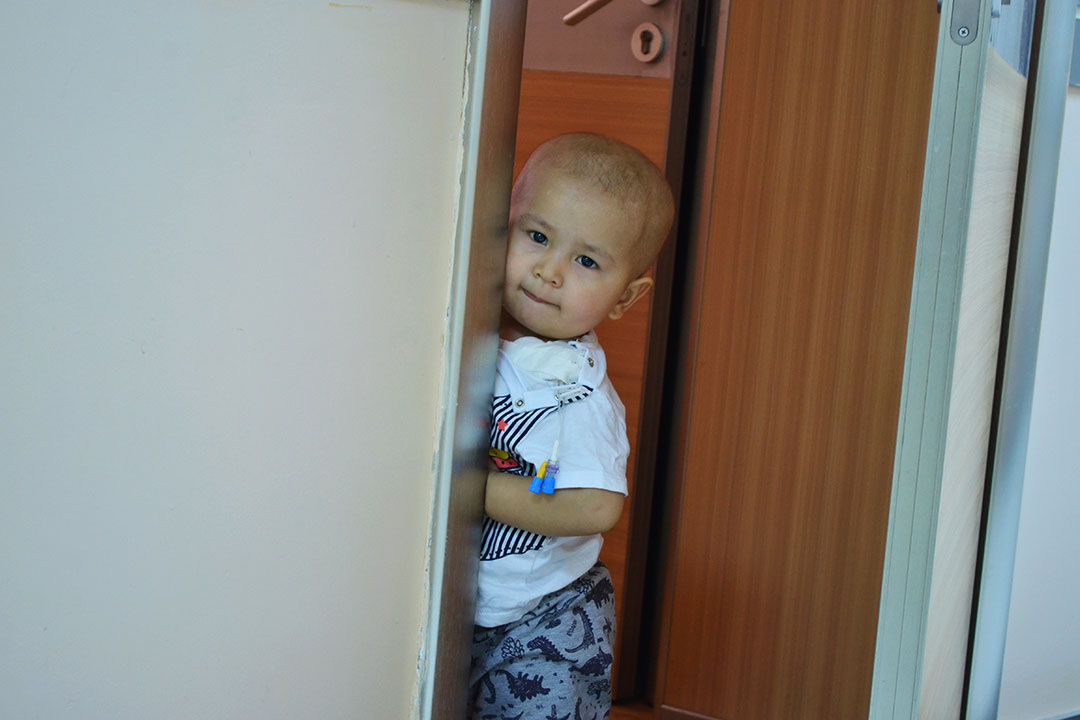Uzbekistan prepares for a viral winter
“Get vaccinated!” advises the government, as spikes in both flu and COVID-19 anticipated.
- 27 October 2023
- 5 min read
- by Umida Maniyazova

As the winter season approaches, Uzbekistan is gearing up to address the twin challenges posed by COVID-19 and influenza.
Health experts predict an increase in the incidence of COVID-19 and influenza during the winter season, as cold weather and close indoor gatherings create favourable conditions for the spread of respiratory viruses. The co-circulation of these diseases poses a significant challenge for healthcare systems, necessitating proactive measures to mitigate their impact.
A surge on top of a spike?
Concerns of a winter boost to transmission are playing out against the backdrop of an observed summer surge in coronavirus infections in Uzbekistan. As Khilola Alimova, a doctor at the Specialized "Zangiata-1" Republican hospital, reports, "Nowadays the growth of coronavirus infection incidence rate is being observed. In regard to the viral diseases, a seasonal trend is observed. Furthermore, morbidity events are more frequent in autumn, winter, and spring. In the case of the coronavirus in Uzbekistan, a seasonal trend [uptick] was seen in summer."
For patients with chronic underlying diseases and for unvaccinated patients, severe and moderately severe disease courses are considered typical.
Indeed, numerous Uzbek citizens took to social networks to share their experiences of contracting COVID-19 in the hotter season, with cold-like symptoms revealed to be related to the coronavirus subsequent to testing. Some individuals reported developing pneumonia as a result of the infection.
As Anvar Khusanov, director of the hospital notes, at present various "Omicron" type of coronaviruses, notably its EG.5 "Eris" subtype, are circulating most heavily.

Credit: Umida Maniyazova
The average age of patients with severe clinical cases to the hospital is 62.4. For patients with chronic underlying diseases and for unvaccinated patients, severe and moderately severe disease courses are considered typical.
Medical officers note that as many as half of the patients who arrived at the hospital with coronavirus infections are children, elderly persons, and pregnant women.
Mapping out Uzbekistan's immune defences
Vaccination against COVID-19 and influenza is highly recommended by experts and health authorities in Uzbekistan. With the potential threat of both diseases circulating simultaneously, getting vaccinated provides a crucial layer of protection. Vaccines have proven effective in reducing the severity of symptoms, hospitalisations, and deaths associated with these viruses.
As of September 2023, the total number of COVID-19 vaccines administered in Uzbekistan exceeded 82.2 million doses, according to the Sanitary and Epidemiological Welfare and Public Health Service of Uzbekistan. Some 30,339,860 people had been vaccinated with booster doses, while 93.8% of the vaccine-eligible population had been immunised with a first dose.
Have you read?
Children aged 12 to 18 years had received 3,726,133 doses. Among them 1,534,238 kids had received a first dose, 1,307,657 a second vaccine, and 884 238 young people were vaccinated with a booster dose. Uzbekistan's COVID-19 vaccination campaign is ongoing.
"Pirola" has not been detected in Uzbekistan
According to data released by the Ministry of Public Health of the Republic of Uzbekistan, 100% of recently recorded COVID-19 deaths are caused by the "Omicron" virus strain.
That's because all recorded COVID-19 infections – deadly or mild – in the country are with Omicron-strain virus, according to research conducted by the Sanitary and Epidemiological Welfare and Public Health Service. Though social media has been ablaze with concern and excitement about the "Pirola" strain this Autumn, that mutation has not yet made an appearance in Uzbekistan or other Commonwealth of Independent States (CIS) countries.
As the Sanitary and Epidemiological Welfare and Public Health Service states, there is no reason for anxiety. The epidemiological situation in the country is stable.
"Get vaccinated!"
While no Pirola infections have been detected in the country, the buzz circling the new mutation and the seasonal risk as the northern hemisphere slides towards winter prompted the Sanitary and Epidemiological Welfare and Public Health Service of Uzbekistan to initiate a new appeal to "get vaccinated!"
Nurmat Atabekov, First Deputy Head of the Sanitary and Epidemiological Welfare and Public Health Service informed VaccinesWork that influenza virus vaccination in the country had already kicked off. "Those people who are in the risk group – those who work with population: teachers tutors, medical personnel, staff of the orphanages and people who live there – are vaccinated," he said.
The Ministry of Public Health of the Republic of Uzbekistan says that each year since 2018, some 200,000−300,000 people have been vaccinated against the flu free of charge.
In addition to people whose work puts them at heightened transmission risk, pregnant people, people older than 60 years, and children aged from 6 to 59 months are also included in the list of persons subject to higher contagion risk and severe influenza complications who are therefore subject to the pre-season free vaccination. Other people can be vaccinated at private vaccination centres.
"Vaccinations against the flu and coronavirus, which will help avoid severe courses of these diseases this autumn, are better to be done with a break of two to four weeks," the Sanitary and Epidemiological Welfare and Public Health Service advised.
Public sentiment and appetite for prevention
The response to coronavirus vaccination in Uzbekistan has been variable. While some users on social media are asking about vaccination as an effective means of protection, others are calling for people to refuse the vaccine due to unfounded safety concerns. However, it's important to note that vaccination is one of the most efficient tools for protection against COVID-19 and is recommended for everyone who wants to receive it.








